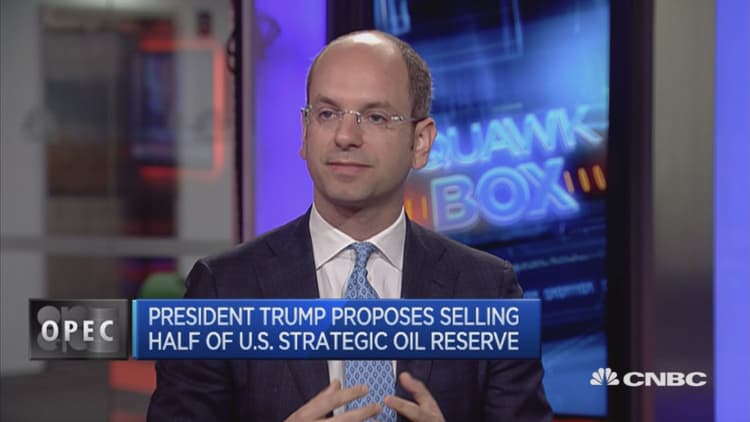Market watchers are keeping a keen eye on Vienna this week as the Organization of the Petroleum Exporting Countries (OPEC) meet to discuss how to boost prices and stabilize the market by extending a current agreement to cut supply.
Michele Della Vigna, commodity equity business unit leader in EMEA for Goldman Sachs, told CNBC's Squawk Box Wednesday that "We think that the base case is just an extension" of the existing agreement to curb supply. But, OPEC "could surprise with deeper cuts," he added.
When questioned on the existence of OPEC as a means of controlling the market, Della Vigna said that the cartel "matters for the inventory path in the next six months." But, he added that the organization's "medium term pricing power (is) zero," attributing this to U.S. shale upping its supply to the market in correspondence with OPEC cuts. Della Vigna referenced the discount between spot and forward oil prices as now being zero, in comparison to 10 percent in November.

For Della Vigna, the overall factor influencing the oil price was U.S. shale production, which he described as having "extraordinary delta." Della Vigna said that last year, shale production "was declining by almost 600 thousand barrels per day," but suggested that by the end of 2017, this could be growing by 900 thousand barrels per day. The return of inflation, rather than a bottleneck, could stop this growth.
With regards to Chinese demand influencing the oil market, Della Vigna said that "Last year, the Chinese were very tactical, buying a lot of oil when it was very cheap." "Since the oil price has recovered we think their build up of strategic inventory has slowed down but (still) continues," he explained, also saying that it would remain part of the demand story for several years.

Della Vigna also said that he "expect(ed) demand to rebound from what was a weak first quarter" which he partly attributed as being down to "Indian demonetization," the effect of which he expected to roll over.
Turning to political risk, Della Vigna played down the role enhancing nuclear sanctions on Iran could have, saying that it poses "a political risk in the oil price that comes together with other countries," listing also Nigeria, Iraq and Libya.
Despite the potential for sanctions to be implemented, or terror attacks in oil producing countries, Della Vigna reasoned that there is "always going to be near term volatility" and that the "world can without doubt cope with a supply disruption here."

